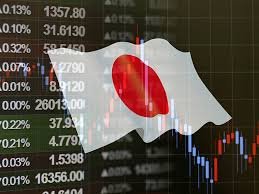The Asia-Pacific market at the start of the New Year showed a slightly weaker yen. Since the end of last year, there has been speculation in the market that the Bank of Japan will postpone negative interest rate cuts at its January meeting, and the current trend is seen as an extension of that. Furthermore, a major earthquake, the “Reiwa 6th Year Noto Peninsula Earthquake,” occurred on the Noto Peninsula, and the market’s response is still unclear regarding its impact and damage to the economy.
Regarding the major earthquake, it might be worth referring to the response during the March 11, 2011, Great East Japan Earthquake. At that time, the initial reaction was a weaker yen, but London traders subsequently pushed for a stronger yen. However, the current situation with the prevailing speculation about the Bank of Japan is different, so it’s best to consider the 3/11 response as a reference point.
In the upcoming international markets, economic indicators scheduled for release include Manufacturing PMI Final Figures for France, Germany, the Eurozone, the UK, and the US (December), as well as US Construction Spending (November). There are no scheduled speaking events for major financial authorities or officials. Switzerland and Russia will be closed for New Year holidays.
Happy New Year! I wish you a successful and prosperous year ahead.
The recent Noto Peninsula earthquake was of significant magnitude. My thoughts are with those who have been affected by the earthquake and those who are currently living in evacuation.
Some reports suggest that, similar to the previous major earthquake, there could be a short-term increase in the value of the yen. This is based on the prediction that Japanese companies may repatriate funds from overseas, which could lead to a stronger yen in the short term.
However, it’s important to note that this earthquake, while significant, is not on the same scale as the Great East Japan Earthquake in 2011. Additionally, Japan’s trade surplus is not as massive as it was back then, so I don’t expect a significant strengthening of the yen as a direct result of this earthquake.
Nonetheless, if traders believe that such a move is likely, it could become a self-fulfilling prophecy, so it’s something to keep an eye on.
That said, my view remains that the USD/JPY exchange rate is likely to decline in 2024, so I continue to have a bearish bias towards the USD/JPY pair.


